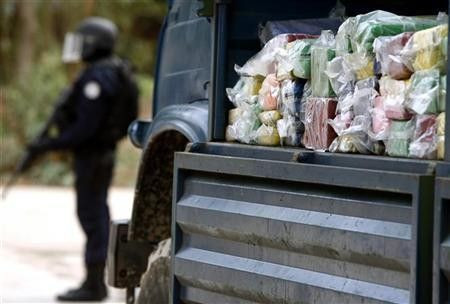Yakuza, Camorra Targets in Obama Organized Crime Crackdown

The Obama administration took aim at transnational criminal organizations on Monday, slapping harsh sanctions on four of the world's most notorious organized crime groups.
In a report accompanying the sanctions, the administration described how crime organizations pose a threat to national security by increasingly expanding beyond their home countries in order to advance criminal enterprises and collude with corrupt or repressive governments in weak states. The report charges that organized crime organizations also supply arms to terrorist groups or aid the drug trafficking that helps to fund many terrorist enterprises.
"In years past, [Transnational Organized Crime] was largely regional in scope, hierarchically structured, and had only occasional links
to terrorism," the report says. "Today's criminal networks are fluid, striking new alliances with other networks around the world and engaging in a wide range of illicit activities, including cybercrime and providing support for terrorism."
The sanctions freeze access to U.S. property belonging to four criminal groups: the Brother's Circle, which originated in Eastern Europe; the Camorra, an Italian group that derives much of its profit from counterfeiting and narcotics; the Yakuza, a Japanese organization that boasts some 80,000 members and traffics in methamphetamine; and the Mexican Los Zetas, which funnels drugs into the U.S.
"The demand for illicit drugs, both in the United States and abroad, fuels the power, impunity and violence of criminal organizations around the globe," the White House's Strategy to Combat Transnational Organized Crime said.
© Copyright IBTimes 2024. All rights reserved.





















